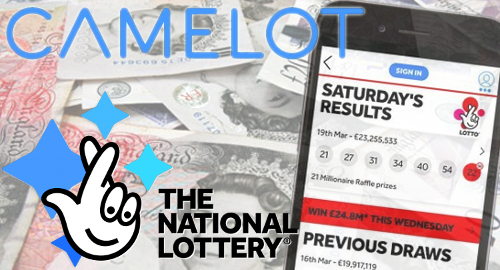 UK National Lottery operator Camelot UK Lotteries Ltd posted record digital sales in its most recent fiscal year while retail sales merely limped along.
UK National Lottery operator Camelot UK Lotteries Ltd posted record digital sales in its most recent fiscal year while retail sales merely limped along.
On Tuesday, Camelot reported its fiscal 2018-19 sales had topped £7.2b in the 12 months ending March 31, a 3.7% improvement over the previous fiscal year. Draw-based games fell by £35m to £4.08b, while in-store Scratchards and online Instant Win Games combined for sales of £3.12b, up by £290m year-on-year.
As with previous years, digital sales growth vastly outstripped retail growth. Total digital (interactive and subscription) sales rose by more than £181m to a record £1.83b, of which mobile and tablet devices accounted for £1.02b, an impressive year-on-year rise of £319m. By contrast, retail sales were up only £73.8m to £5.37b, despite efforts to introduce new sales options at some retail self-checkouts.
Despite the overall sales rise, Camelot’s total returns to ‘Good Causes’ fell by £600k to £1.65b. These good causes included £39m for Camelot’s “necessary marketing expenditure,” as agreed with the UK Gambling Commission (UKGC).
The UKGC found time over the past fiscal year to impose a £1.15m penalty on Camelot for “sufficiently serious” control and governance failings, including the release of the company’s not-ready-for-prime-time mobile app in 2016. It was the fourth time in as many years that Camelot was taken to the regulatory woodshed.
Camelot was placed in a tricky situation earlier this year when a couple yobs – both of them with criminal convictions in the double-digits – claimed a £4m scratchcard prize. However, suspicions were raised after the pair revealed that neither of them had a bank account, while the winning ticket was purchased with a bank debit card.
The pair initially claimed they’d bought the ticket with cash, then claimed they’d got a mate to buy the ticket with his debit card, except they couldn’t identify this mate beyond his first name. Camelot has so far refused to pay out while it continues its investigation, prompting the yobs to threaten to take Camelot to court if they can’t collect.
Camelot’s caution is understandable, given that it’s still reeling from a similar crime-related cockup. In 2009, Camelot issued a £2.5m National Lottery jackpot to a convicted rapist who last September was charged with fraud for submitting an apparently bogus winning ticket.